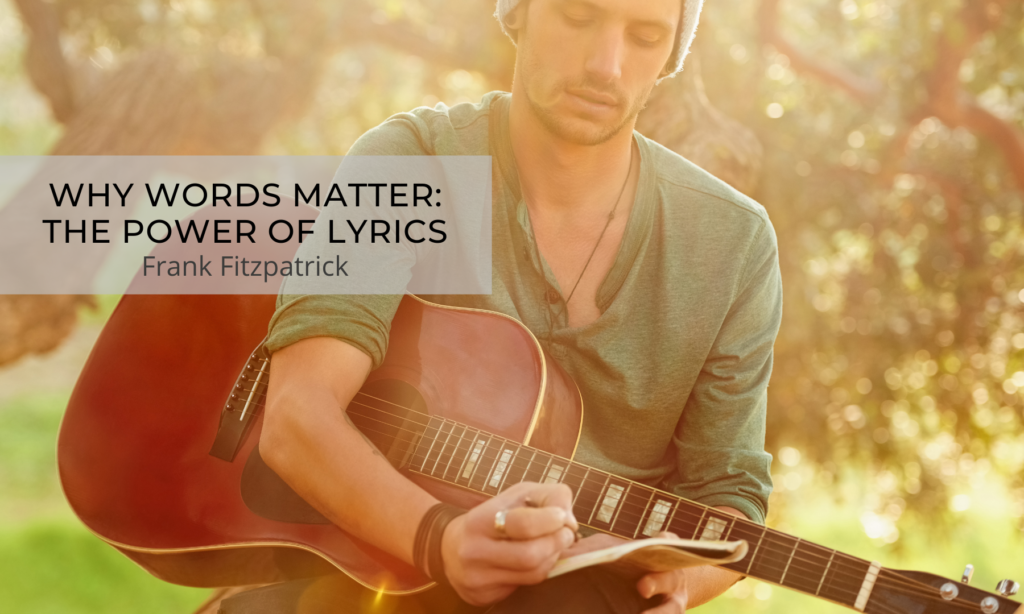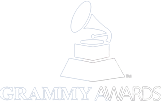Home Frank’s Blog Why Words Matter: The Power of Lyrics
Why Words Matter: The Power of Lyrics
Frank Fitzpatrick 12/09/2020

|
No time to read? Pick your language & press PLAY
Getting your Trinity Audio player ready...
|
I had the pleasure to see artist and friend Ziggy Marley perform a sold-out tribute to his father, the legendary Bob Marley, at the Hollywood Bowl last year. That show was the first time Ziggy toured performing a full tribute to his father, whose spirit was alive and singing with all 14,000 of us on that starry night in the Hollywood Hills. It was also the first time Ziggy had ever performed live with an orchestra. The sound and show were nothing short of amazing.
What resonated most with me during the performance were those timeless and unforgettable words scribed by one of the most important musical prophets of our time, Bob Marley. It was hard to create anything but a sense of unity and euphoria when 14,000 people sang “One Love” together, or to remain focused on the stresses of the day when chanting along to the refrain of “Three Little Birds.”
There have been countless debates of how important lyrics are to the popularity of a song. While many songs have topped the charts without great consideration for the quality of the lyrical content, some of the songs we love most were penned by the great storytellers of our time. In the end, I can’t say whether the public is becoming more or less conscious of the quality and messages contained in the words of the songs they listen to.
I was filled with hope , however, when modern-day musical prophet, Bob Dylan, received the Nobel Prize in Literature in 2016 for his lyrics — a historical first. On the other hand, I was a bit discouraged a few weeks later when I heard an NPR music reporter claim that his favorite artist at the influential SXSW Music Festival was a rising star who used gibberish in place of words and lyrics.
Some people listen closely to lyrics, even singing along with them, while others have little idea or care for what is being said in the words of their favorite songs. A song with a great beat, that we love to play to get us pumped up at the gym, may have expressions of profanity, prejudice or more subtle negative messages that defy the mood and state of consciousness we are seeking to obtain, not to mention our own beliefs and value systems.
Words, like thoughts, harmonies and melodies, can deeply affect us. When combined with music, words and the energy they carry can resonate even more deeply.
Adding music (melody and accompaniment) to a lyrical statement or message activates more areas of the human brain than words alone and can make that message “stickier” — triggering our emotions and memory. One of the most powerful ways to influence emotions and consciousness is to set words to memorable music. Add engaging images to this mix and you have what holders of ancient wisdom have known for thousands of years as the ultimate power over the populace.
It is not just the quality of the writing that we should care about, but also the messages carried in the lyrics and embedded in our subconscious programming. Great songs have long been used to inspire hope, create a sense of unity, galvanize beliefs and move people to action. Songs of this nature are powerful and useful tools for our lives.
In the wrong hands, however, the combined power of music and words can be used to influence people to act in less than desirable ways. Think of the jingle used to convince us to eat unhealthy food, the lyrics of a popular artist promoting violence and chauvinism, or the anthems used by Hitler to unite the masses behind his mission.
As Nathaniel Hawthorne reminds us, “Words — so innocent and powerless as they are, as standing in a dictionary, how potent for good and evil they become in the hands of one who knows how to combine them.” The messages combined with music shape the thoughts and beliefs across generations and cultures, for better or worse.
It is extremely important for us to be mindful of the messages and lyrical content we receive through the music we listen to, and to choose wisely when we put together our playlists. I’m not saying that every song we listen to has to have a moral story or deep meaning, or qualify for a Nobel Prize in Literature. Songs, like stories, can play many roles and express a wide range of ideas and emotions. One of the greatest gifts music can bring us is joy. A harmless, somewhat shallow lyrical chant that gets everyone up and dancing joyfully can have great benefit, too.
Think of the music that you listen to as part of your sonic diet. The content of that music affects your system just as the choice of food you eat does. Eat junk food or sugar on a regular basis, or repeatedly subject yourself to negative programming through your musical diet, and you will find it more challenging to create and maintain the mindset and energy you need to live a healthy and fulfilling life.
The key is to be aware of how words are affecting our internal programming.
As with most mindfulness practices, a mindful music practice starts with awareness — being present to how your sonic environment is affecting you on more subtle levels. Even young children, when made aware of how to do so, are able to recognize these influences and can apply the discernment to their musical and life choices.
My dear friend and colleague Nicole Dreiske, founder of the International Children’s Media Center, has tested this process with hundreds of kids on the South Side of Chicago. As part of her work, Nicole teaches children as young as 5 years old to recognize how the music and lyrics in the songs and film soundtracks they listen to affect their emotions and beliefs. They take to it so well that many of the kids help teach their parents to apply the same levels of sonic awareness and discretion.
Lyrics can influence our beliefs and behaviors as much as books or the evening news. Fela Kuti used to say that it was an artist’s responsibility to use the power of their music to consciously create a better world. Unfortunately, not all artists agree with Kuti. While I support artistic freedom and freedom of speech, I don’t believe we should rely on artists to choose the music we ingest. We have to take that power into our own hands. The upside is that we can harness the power of lyrics to shape our own thoughts and well-being.
Help transform lives through music. Make a donation today at EarthTones.Org
Want to Learn More?
To learn more about how you can use the Power of Music to Unleash Your Potential, check out the FREE AMPLIFIED MASTERCLASS.
To learn how we can use music to create a better world, and support music programs and research for empowering those in need, check out our work at the WHYMusicCampaign.com.
To learn more about upcoming programs, books, music, and film releases, Sign up here.
Looking to book me as a speaker? Learn more here.
••••
About the Author
Frank Fitzpatrick is a Creative Visioneer, Engagement Expert and High-Performance Coach on the Faculty of Singularity University’s Exponential Medicine.
To connect, go to FrankFitzpatrick.com
To learn more about working 1-on1 with Frank, go to BeyondPerformance.Life
Related Articles
Food For Thought: Curating a Sound Musical Diet
I’m here to help YOU create a better world, inside and out.
Contact Me© 2025 Frank Fitzpatrick Website by AllHereIndia












